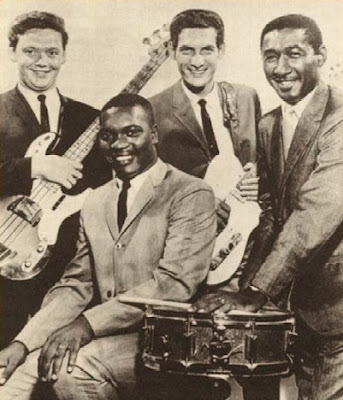|
|
Monday, August 4th, 2008
He thought that good literature is common enough, that there is scarce a dialogue on the street that does not achieve it. He also thought that the æsthetic act cannot be carried out without some element of astonishment, and that to be astonished by rote is difficult.
In the interests of understanding The Year of the Death of Ricardo Reis, I pulled down Borges' Ficciones this evening to reread "An Examination of the Works of Herbert Quain" -- one of Quain's works is the misleading detective story The God of the Labyrinth, which Reis is reading early in the novel.I'm finding this, well, a lot of fun -- the degree of layering of fiction on fiction is really astonishing. (Particularly when Borges admits to having adapted one of his own stories, "The Circular Ruins," from a manuscript by Quain.) I'm waiting for personalities to emerge, but am confident they will; for the time being I'm just enjoying the technical beauty of the composition. It has been several years since I read any of Borges' stories; his mastery of language is washing over me again. I'm reacting to his voice in a way I never did before, which is to feel like Borges is a control freak who wants me to react to every word of his in a particular way, and is leaving no room for my own reading; not sure how valid this is, it's just a spur-of-the-moment thought.
 (According to The Modern Word, Saramago is not the only author to make use of The God of the Labyrinth. In Philip K. Dick's notes for a sequel to The Man in the High Castle, there is mention of Joseph Goebbels reading Quain's book.)
posted evening of August 4th, 2008: 2 responses
➳ More posts about The Year of the Death of Ricardo Reis
|  |
|
Some new pictures are up at the READIN Family Album -- a mix of stuff from the last few weeks including Ellen and Sylvia's trip to Cambridge, our outing to "Playing the Building", and an epic battle between Lola and Pixie. Here is a great shot of Ellen and Sylvia (who is herself the photographer): 
posted evening of August 4th, 2008: Respond
➳ More posts about the Family Album
|  |
|

Time to gather your arse up off the floor,
(have a bana-na)
Brush your teeth and go toddling off to war.
Wave your hand to sleepy land,
Kiss those dreams away,
Tell Miss Grable you're not able,
Not till V-E Day, oh,
Ev'rything'll be grand in Civvie Street
(have a bana-na)
Bubbly wine and girls wiv lips so sweet --
But there's still the German or two to fight,
So show us a smile that's shiny bright,
And then, as we may have suggested once before --
Gather yer blooming arse up off the floor!
 The good people at the London Banana Project have been uploading photos of urban banana peels to their site. And I say it's a fine thing; I like to think Pirate would agree with me. (Thanks for the link, Christine!) The good people at the London Banana Project have been uploading photos of urban banana peels to their site. And I say it's a fine thing; I like to think Pirate would agree with me. (Thanks for the link, Christine!)
 Update: Dave Barber is clear-eyed in the face of lurking danger. "At minimum, the locations of the banana peels should be plotted on a coordinate map to see if they fit a Poisson distribution."
posted afternoon of August 4th, 2008: Respond
➳ More posts about Pretty Pictures
|  |
|
 Senator Obama is 47 today! He is speaking in Michigan today about energy policy. Senator Obama is 47 today! He is speaking in Michigan today about energy policy.
posted morning of August 4th, 2008: Respond
➳ More posts about Birthdays
|  |
Sunday, August third, 2008
And since I was its audience, I was happy with it. Not sure I learned much about Thompson that I did not already know; but I liked watching the footage. His ex-wife, who got a lot of screen-time, was definitely the most interesting person they interviewed. I could have done without all the re-enactments of him typing stories, and I could totally have done without so much screen time devoted to Fear and Loathing in Las Vegas, easily the least interesting portion of the movie. I just absolutely did not get why they would use footage from the 1998 movie.
posted evening of August third, 2008: Respond
➳ More posts about Gonzo
|  |
How little they must have known him, to address him and speak of him in this way. They take advantage of his death, his feet and hands are bound. They call him a despoiled lily, a lily like a girl stricken by typhoid fever, and use the adjective gentle. Such banality, dear God. Since gentle means noble, chivalrous, gallant, elegant, pleasing, and ubane, which of these would the poet have chosen as he lay in his Christian bed in the Hospital of São Luís. May the gods grant that it be pleasing, for with death one should lose only life.
Starting The Year of the Death of Ricardo Reis so soon after I finished The Cave I am really noticing something about Saramago's pacing; the last half of the book really pulls you along in a rush, where the first half is much slower and more open to stopping, starting, jumping back to a few pages previous. I think I have had similar experiences with Blindness and Seeing, as well.
posted evening of August third, 2008: Respond
➳ More posts about José Saramago
|  |
|
  We're going out tonight to see Gonzo -- how exciting! We're going out tonight to see Gonzo -- how exciting!
I've loved Thompson's writing for a long time now, and am interested to see his life on the screen.
posted afternoon of August third, 2008: Respond
➳ More posts about The Movies
|  |
Saturday, August second, 2008
Meanwhile the guest returns to the reception desk, somewhat out of breath after all that effort. He takes the pen and enters the essential details about himself in the register of arrivals, so that it might be known who he claims to be, in the appropriate box on the lined page. Name, Ricardo Reis, age, forty-eight, place of birth, Oporto, marital status, bachelor, profession, doctor, last place of residence, Rio de Janeiro, Brazil, whence he has arrived aboard the Highland Brigade. It reads like the beginning of a confession, an intimate autobiography, all that is hidden is contained in these handwritten lines, the only problem is to interpret them.
The three books I have read so far by Saramago are all quite recent; now I am going back much further, to 1986's Year of the Death of Ricardo Reis, one of the earliest of his major works. But it is instantly recognizable as the work of the same author based on his distinctive style and on his manner of expression -- I can't picture the construction "so that it might be known who he claims to be" coming out precisely that way from any other author's pen. This book is not translated by Margaret Jull Costa but by Giovanni Pontiero -- the similarity of voice gives me confidence in the abilities of both translators.I see Saramago's habit of deconstructing commonplace expressions coming through here, although the two examples I've noted in the opening pages -- "pay the fare" and another that I'm not finding now -- are not arresting in the way that I've found his later work. This book is set explicitly in Portugal, in Lisbon, unlike the anonymous countries and cities of his later books. I find that I have no preconceived image of Portugal! So I guess I will acquire one here.
 Oh! I see now that Blindness was also translated by Pontiero; I had forgotten.
posted evening of August second, 2008: Respond
➳ More posts about Readings
|  |
|
I read to the end of McGaha's Autobiographies of Orhan Pamuk today -- it is a good book and I think especially useful to the non-Turkish reader (i.e. myself) approaching Pamuk's books for the second time, to clarify cultural and historical references that might otherwise be lost. Does a really good job of drawing out common threads in Pamuk's books which the disparity of voices and styles can obscure. In short -- I would strongly recommend it if you have read all or most of Pamuk's novels to date and are thinking about rereading them. It also makes brief reference to the forthcoming Museum of Innocence, which will be translated by Erdağ Göknar -- in his application for a grant to do the translation, Göknar says, the protagonist "comes from an upper-class Instanbul family who, after two failed relationships, goes on an obsessive journey in search of places and objects that remind him of his lost loves and that, once assembled, constitute the bulk of a museum of his obsessions" which is more than I had heard about the content of the book before now.McGaha ends by saying, Orhan Pamuk is only fifty-five years old and is at the peak of his creative powers. There is every reason to believe that his best work still lies ahead of him. I look forward to reading his novels for many years to come. which -- Wow! What a lovely thought! I can't wait for Museum of Innocence. (Which not that it means anything, but I'm finding kind of charming the parallelism between its title and Robyn Hitchcock's song, "Museum of Sex".)
 Note: apparently Göknar's application did not pan out; Freely is doing the translation, which will be published in October '09.
posted evening of August second, 2008: Respond
➳ More posts about Autobiographies of Orhan Pamuk
|  |
|
 The BBC documentaries about Stax records which Chris mentioned yesterday are not available to US web surfers; but you can watch the the Stax '67 tour of Norway on YouTube, albeit broken up into ten-minute chunks and subject to slow downloading. Use the playlist to watch all 6 in order. The BBC documentaries about Stax records which Chris mentioned yesterday are not available to US web surfers; but you can watch the the Stax '67 tour of Norway on YouTube, albeit broken up into ten-minute chunks and subject to slow downloading. Use the playlist to watch all 6 in order.
posted afternoon of August second, 2008: Respond
➳ More posts about The Blues
| Previous posts
Archives  | |
|
Drop me a line! or, sign my Guestbook.
•
Check out Ellen's writing at Patch.com.
| |

